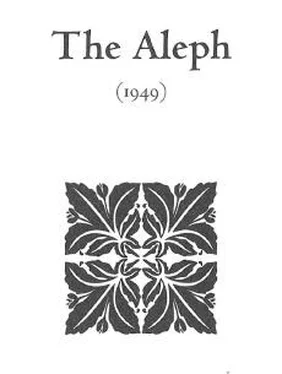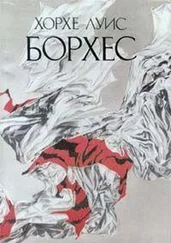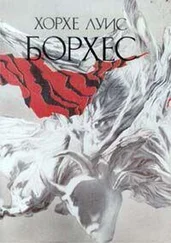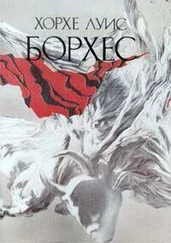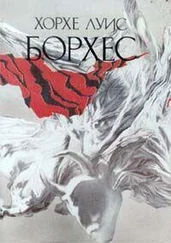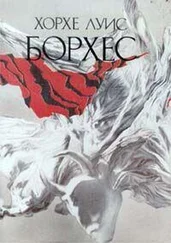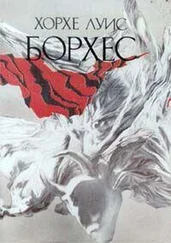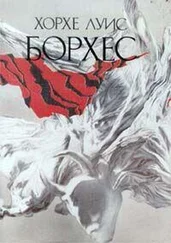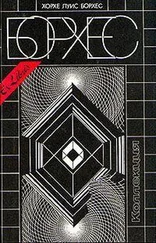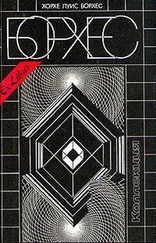Хорхе Борхес - Collected Fictions
Здесь есть возможность читать онлайн «Хорхе Борхес - Collected Fictions» весь текст электронной книги совершенно бесплатно (целиком полную версию без сокращений). В некоторых случаях можно слушать аудио, скачать через торрент в формате fb2 и присутствует краткое содержание. Год выпуска: 1999, ISBN: 1999, Издательство: Penguin (UK), Жанр: Старинная литература, на английском языке. Описание произведения, (предисловие) а так же отзывы посетителей доступны на портале библиотеки ЛибКат.
- Название:Collected Fictions
- Автор:
- Издательство:Penguin (UK)
- Жанр:
- Год:1999
- ISBN:9780140286809
- Рейтинг книги:5 / 5. Голосов: 1
-
Избранное:Добавить в избранное
- Отзывы:
-
Ваша оценка:
- 100
- 1
- 2
- 3
- 4
- 5
Collected Fictions: краткое содержание, описание и аннотация
Предлагаем к чтению аннотацию, описание, краткое содержание или предисловие (зависит от того, что написал сам автор книги «Collected Fictions»). Если вы не нашли необходимую информацию о книге — напишите в комментариях, мы постараемся отыскать её.
Collected Fictions — читать онлайн бесплатно полную книгу (весь текст) целиком
Ниже представлен текст книги, разбитый по страницам. Система сохранения места последней прочитанной страницы, позволяет с удобством читать онлайн бесплатно книгу «Collected Fictions», без необходимости каждый раз заново искать на чём Вы остановились. Поставьте закладку, и сможете в любой момент перейти на страницу, на которой закончили чтение.
Интервал:
Закладка:
I reread what I have just written and I fear I have not made sufficiently explicit the virtues of this book. It has some quite civilized features; for example, that argument in Chapter XIX in which the law student (and the reader) sense that one of the participants in the debate is a friend of Al-Mu'tasim—the man does not rebut another man's sophisms "in order not to gloat at the other man's defeat."
· · ·
It is generally understood that a modern-day book may honorably be based upon an older one, especially since, as Dr. Johnson observed, no man likes owing anything to his contemporaries. The repeated but irrelevant points of congruence between Joyce's Ulysses and Homer's Odyssey continue to attract (though I shall never understand why) the dazzled admiration of critics. The points of congruence between Bahadur's novel and Farîd al-dîn Attar's classic Conference of the Birds meet with the no less mysterious praise of London, and even of Allahabad and Calcutta. There are other debts, as well. One investigator has documented certain analogies between the first scene of the novel and Kipling's story "On the City Wall"; Bahadur acknowledges these echoes, but claims that it would be most unusual if two portraits of the tenth night of Muharram should not agree.... With greater justice, Eliot recalls that never once in the seventy cantos of Spenser's unfinished allegory The Faerie Queene does the heroine Gloriana appear—an omission for which Richard William Church had criticized the work. I myself, in all humility, would point out a distant, possible precursor: the Kabbalist Isaac Luria, who in Jerusalem, in the sixteenth century, revealed that the soul of an ancestor or teacher may enter into the soul of an unhappy or unfortunate man, to comfort or instruct him. That type of metempsychosis is called ibbûr.¹
¹ In the course of this article, I have referred to the Manttq al-tatr, or Conference [perhaps "Parliament"] of the Birds, by the Persian mystic poet Farïd al-dïn Abï Hämid Muhammad ben Ibrahim (known as Attãr, or "perfumer"), who was murdered by the soldiers under Tuluy, the son of Genghis Khan, when Nishapur was sacked. Perhaps I should summarize that poem. One of the splendid feathers of the distant King of the Birds, the Sïmurgh, falls into the center of China; other birds, weary with the present state of anarchy, resolve to find this king. They know that the name of their king means "thirty birds"; they know that his palace is in the Mountains of Kaf, the mountains that encircle the earth. The birds undertake the almost infinite adventure. They cross seven wadis or seven seas; the penultimate of these is called Vertigo; the last, Annihilation. Many of the pilgrims abandon the quest; others perish on the journey. At the end, thirty birds, purified by their travails, come to the mountain on which the Sïmurgh lives, and they look upon their king at last: they see that they are the Sïmurgh and that the Sïmurgh is each, and all, of them. (Plotinus, too, in the Enneads [V, 8, 4], remarks upon a paradisal extension of the principle of identity: "Everything in the intelligible heavens is everywhere. Any thing is all things. The sun is all stars, and each star is all stars and the sun.") The Manttq al-tair has been translated into French by Garcinde Tassy, into English by Edward FitzGerald; for this note I have consulted Richard Burton's 1001 Nights, Vol. X, and the Margaret Smith study entitled The Persian Mystics: Attar (1932).
The parallels between this poem and Mir Bahadur Ali's novel are not overdone. In Chapter XX, a few words attributed by a Persian bookseller to Al-Mu'tasim are perhaps an expansion of words spoken by the hero; that and other ambiguous similarities may signal the identity of the seeker and the sought; they may also signal that the sought has already influenced the seeker. Another chapter suggests that Al-Mu'tasim is the "Hindu" that the law student thinks he murdered.
Pierre Menard, Author of the Quixote
For Silvina Ocampo
The visible œuvre left by this novelist can be easily and briefly enumerated; unpardonable, therefore, are the omissions and additions perpetrated by Mme. Henri Bachelier in a deceitful catalog that a certain newspaper, whose Protestant leanings are surely no secret, has been so inconsiderate as to inflict upon that newspaper's deplorable readers—few and Calvinist (if not Masonic and circumcised) though they be. Menard's true friends have greeted that catalog with alarm, and even with a degree of sadness. One might note that only yesterday were we gathered before his marmoreal place of rest, among the dreary cypresses, and already Error is attempting to tarnish his bright Memory.... Most decidedly, a brief rectification is imperative.
I am aware that it is easy enough to call my own scant authority into question. I hope, nonetheless, that I shall not be prohibited from mentioning two high testimonials. The baronessde Bacourt (at whose unforgettable vendredis I had the honor to meet the mourned-for poet) has been so kind as to approve the lines that follow. Likewise, the countessde Bagnoregio, one of the rarest and most cultured spirits of the principality of Monaco (now of Pittsburgh, Pennsylvania, following her recent marriage to the international philanthropist Simon Kautzsch—a man, it grieves me to say, vilified and slandered by the victims of his disinterested operations), has sacrificed "to truth and to death" (as she herself has phrased it) the noble reserve that is the mark of her distinction, and in an open letter, published in the magazine Luxe, bestows upon me her blessing. Those commendations are sufficient, I should think.
I have said that the visible product of Menard's pen is easily enumerated. Having examined his personal files with the greatest care, I have established that his body of work consists of the following pieces:
a) a symbolist sonnet that appeared twice (with variants) in the review La Conque (in the numbers for March and October, 1899);
b) a monograph on the possibility of constructing a poetic vocabulary from concepts that are neither synonyms nor periphrastic locutions for the concepts that inform common speech, "but are, rather, ideal objects created by convention essentially for the needs of poetry" (Nîmes,1901);
c) a monograph on "certain connections or affinities" between the philosophies of Descartes, Leibniz, and John Wilkins (Nîmes,1903);
d) a monograph on Leibniz' Characteristica universalis (Nîmes,1904);
e) a technical article on the possibility of enriching the game of chess by eliminating one of the rook's pawns (Menard proposes, recommends, debates, and finally rejects this innovation);
f) a monograph on Ramon Lull'sArs magna generalis (Nîmes,1906);
g) a translation, with introduction and notes, of Ruy López de Segura's Libro de la invención liberal y arte del juego del axedrez (Paris, 1907);
h) drafts of a monograph on George Boole's symbolic logic;
i) a study of the essential metrical rules of French prose, illustrated with examples taken from Saint-Simon (Revuedes langues romanes, Montpellier, October 1909);
j) a reply to Luc Durtain (who had countered that no such rules existed), illustrated with examples taken from Luc Durtain (Revuedes langues romanes, Montpellier, December 1909);
k) a manuscript translation of Quevedo's Aguja de navegar cultos, titled La boussole des précieux;
l) a foreword to the catalog of an exhibit of lithographs by Carolus Hourcade (Nîmes,1914);
Читать дальшеИнтервал:
Закладка:
Похожие книги на «Collected Fictions»
Представляем Вашему вниманию похожие книги на «Collected Fictions» списком для выбора. Мы отобрали схожую по названию и смыслу литературу в надежде предоставить читателям больше вариантов отыскать новые, интересные, ещё непрочитанные произведения.
Обсуждение, отзывы о книге «Collected Fictions» и просто собственные мнения читателей. Оставьте ваши комментарии, напишите, что Вы думаете о произведении, его смысле или главных героях. Укажите что конкретно понравилось, а что нет, и почему Вы так считаете.
